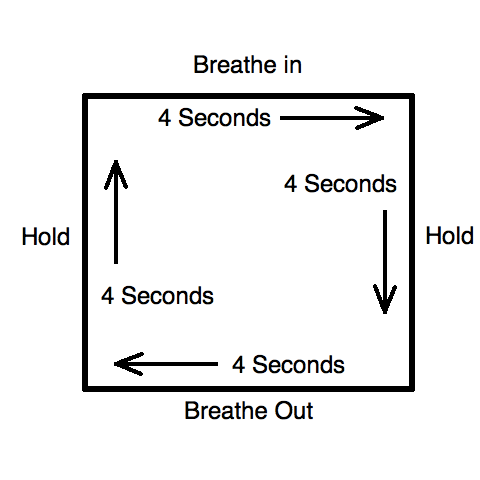Home learning tips
For parents we need to consider the
- Emotional impact
- The environment
- Working with their strengths
- Managing the challenges
Emotional impact
Children with learning differences generally have heightened anxiety and worry about their learning already. With the current changes of both going online with learning and with the Covid 19 alert system in NZ this worry will increase. These feelings are all normal, they are just happening more for us at the moment.
When a person is anxious their thinking brain (pre frontal cortex) is not engaged so learning is very difficult. To be able to take part in learning helping with anxiety is a priority.
Research shows diaphragmatic breathing (this is tummy breathing) helps to reduce chemicals, including cortisol, in the brain and therefore reduces the symptoms of anxiety and worry.
One method to help with this is “Square Breathing”
 Or follow on You Tube here
Or follow on You Tube here
Doing this breathing regularly helps to get on top of the anxiety quicker when we are in stressful situations.
This works for everyone – parents as well. Remember anxiety is a normal reaction and is your brain’s way of protecting you.
Talking about what is happening
The other method to help is to talk about what is happening with the anxiety, especially with the home learning, – in our work we say this is our brain “going off line”.
Help your child to understand when their brain has going off line. See more here about what can make a child with learning difference’s brain go off line.
The environment
Noise and glare can be environmental factors that make it harder for your child to concentrate on their home learning. Help your child think about what in their learning environment can cause them to become distracted.
Consider reducing background noise
- Ask the child what in their environment they keep hearing, for example, the heat pump hum can be enough to interrupt concentration
- Have the child wear noise cancelling headphones.
Concentration
- Break concentration times into chunks. Set a time for how long to concentrate and a time for the breaks, for example, 15 minutes concentration and then a 10-15 minutes break
- Breaks with physical activity are important.
Reduce glare and use natural light where possible.
- Computer download for a coloured background to reduce computer screen glare
- Use Immersive Reader on Microsoft Word or One Note

Working with their strengths
Seeing the big picture
- To help children get started they need to understand the big picture of what they have to do. It is important that the school gives them the instructions and an example of what they must do to help them understand what the whole task involves.
- For example, if they have to complete some questions after watching a video make sure the first one or two questions are already completed as an example.
Visual learners
- Where possible direct them to video’s and pictures to help increase their understanding.
Multi-sensory techniques to increase engagement and learning
This just means using different methods to learn that engages our different senses of sight, hearing, movement and touch.
- For example, for spelling making the words with play dough, having the letters around the room and they run to them in order and writing them.
- For example, learning the sounds of letters, looking for other things in the house that start with the same sound.
- Using materials for maths equations, eg beans, stones etc
- More examples here
Managing the challenges
What is difficult
- Any time pressure to complete school work
- Not understanding the big picture
- Not knowing how to use the equipment eg on line school programmes
- Motivation to do work that is hard for them
All of these things lead to increased anxiety and their brain going offline.
What you can do
- Reduce the time pressure
- Make sure they see an example of what they must do and even practice it before completing a task
- Make sure they have explicit instruction on how to open computer programmes they are using for the school work (this may have to come from the school).
- Help them get organised with what tasks they must do. If they can see it, they can understand it better
- Use checklists for what supplies they need to get organised before starting their school work, for example, comfortable seat, instructions
- Put their tasks on post it notes and help move them into an order for completion. Even break down some of those tasks into smaller chunks (with more post it notes).
- Talk with them about how this is new, and it is always harder when it is new. It’s normal not to know what to do at the start.
As a parent just know
- this is not going to last
- ask the school if you have questions – it’s not all going to work smoothly
- take the time to breathe
We are here to help if your child is worrying about their learning differences and home learning.
We have access to experts who can offer more suggestions and help.
Call us 027 2016951 or email [Enable JavaScript to view protected content]
